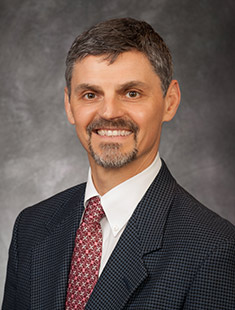
- Roderick Dashwood
- Director, Center for Epigenetics & Disease Prevention, Houston TX
- Email:
- rdashwood@ibt.tamhsc.edu
- Phone:
- 713-677-7806
- http://www.ibt.tamhsc.edu/research/cedp/
Education and Training
B.S. Biological Sciences (Cellular Toxicology), University of Plymouth, UK (1982)
M.S. Toxicology, University of Surrey, UK (1983)
Ph.D. Genetic Toxicology/Carcinogenesis, University of Portsmouth and ICI Central Toxicology Laboratory, UK (1986)
The current focus is on genetic and epigenetic mechanisms in cancer development. The genetic basis of cancer is studied through cultured human cancer cells and whole animal approaches, including transgenic and knockout models. These models are employed to examine changes in oncogenes and tumor suppressors (e.g., K-ras, β-catenin, APC) and the influence of chemoprotective agents and anticancer drug candidates. The epigenetic basis of cancer is studied through work on histone deacetylase (HDAC) inhibitors and changes in protein acetylation in both cancer cells and normal cells treated with dietary agents/anticancer drug candidates. Sulforaphane from broccoli, garlic organosulfur and organoselenium compounds and a short-chain fatty acid derived from gut fermentation of dietary fiber (butyrate) inhibit HDAC activity in human cancer cells and trigger growth arrest/apoptosis. The molecular mechanisms are pursued. To translate this work to humans, HDACs and protein acetylation changes are being examined in volunteers undergoing screening colonoscopy exams.

